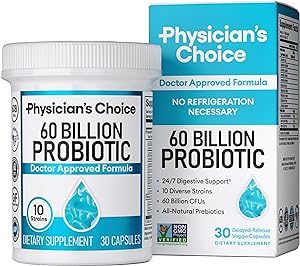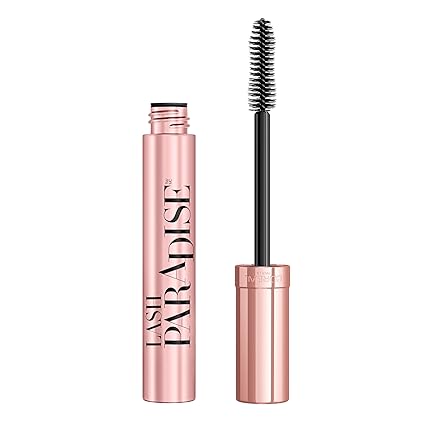The Importance of Probiotic Supplements for Gut Health
In recent years, there has been a significant increase in awareness about the importance of gut health. Probiotic supplements have gained considerable attention among the various strategies to maintain a healthy gut. These supplements are designed to introduce beneficial bacteria into the digestive system, thereby supporting a balanced gut microbiome. This article explores the critical role probiotics play in gut health, the benefits they offer, and how to effectively incorporate them into your daily routine.
Understanding the Gut Microbiome
What is the Gut Microbiome?
The gut microbiome refers to the vast community of microorganisms living in the digestive tract. This complex ecosystem includes bacteria, fungi, viruses, and other microbes. The gut microbiome plays a crucial role in various bodily functions, including digestion, immune response, and even mental health.
The Role of the Gut Microbiome
The gut microbiome is involved in several key processes:
- Digestive Health: It aids in the breakdown of food, absorption of nutrients, and production of vitamins such as B and K.
- Immune Function: A significant portion of the immune system resides in the gut, where it interacts with the microbiome to defend against pathogens.
- Mental Health: The gut-brain axis highlights the connection between gut health and mental well-being, influencing mood and cognitive functions.
What Are Probiotics?
Definition of Probiotics
Probiotics are live microorganisms that confer health benefits to the host when consumed in adequate amounts. They are often called “good” or “friendly” bacteria.
Sources of Probiotics
Probiotics can be found in:
- Fermented Foods: Yogurt, kefir, sauerkraut, kimchi, and miso are rich sources of probiotics.
- Dietary Supplements: Available in various forms, including capsules, tablets, powders, and liquids, probiotic supplements provide a convenient way to ensure adequate intake.
The Science Behind Probiotics and Gut Health
How Probiotics Work
Probiotics work by balancing the gut microbiome. They compete with harmful bacteria for nutrients and attachment sites on the gut lining, produce substances that inhibit pathogenic bacteria, and modulate the immune system.
Benefits of Probiotics
Improved Digestive Health
Probiotics can help alleviate symptoms of digestive disorders such as:
- Irritable Bowel Syndrome (IBS): Probiotics can reduce bloating, gas, and abdominal pain.
- Diarrhea: Particularly effective in preventing and treating antibiotic-associated diarrhea and infectious diarrhea.
Enhanced Immune Function
Probiotics strengthen the gut barrier, enhance mucosal immunity, and modulate systemic immune responses, making the body more resilient to infections.
Mental Health Benefits
The gut-brain axis suggests that probiotics can influence mental health. They have been shown to:
- Reduce Anxiety and Depression: Certain strains of probiotics can help reduce symptoms of anxiety and depression.
- Improved Mood and Cognitive Function: Regular intake of probiotics has been linked to better mood regulation and cognitive performance.
Weight Management
Probiotics may aid in weight management by:
- Regulating Appetite: Influencing hormones related to hunger and satiety.
- Reducing Inflammation: Chronic inflammation is associated with obesity; probiotics can help mitigate this.
Choosing the Right Probiotic Supplement
Factors to Consider
When selecting a probiotic supplement, consider the following:
- Strain Specificity: Different strains offer different benefits. For example, Lactobacillus rhamnosus GG is effective for diarrhea, while Bifidobacterium longum is beneficial for IBS.
- CFU Count: Colony-forming units (CFUs) indicate the number of viable bacteria. A higher CFU count is generally more effective, though this can vary based on individual needs and conditions.
- Storage and Shelf Life: Some probiotics require refrigeration, while others are shelf-stable. Ensure the product has a viable shelf life.
Popular Probiotic Strains
Some well-researched probiotic strains include:
- Lactobacillus acidophilus: is known for supporting digestive health and immune function.
- Bifidobacterium bifidum: is effective in reducing symptoms of IBS and improving overall gut health.
- Saccharomyces boulardii: is a beneficial yeast that can help prevent and treat diarrhea.
How to Incorporate Probiotics into Your Daily Routine
Dietary Sources
Incorporate fermented foods into your diet. These not only provide probiotics but also other beneficial nutrients. Examples include:
- Yogurt: Choose varieties with live and active cultures.
- Kefir: is a fermented milk drink with a diverse range of probiotics.
- Sauerkraut and Kimchi: are fermented vegetables rich in probiotics and fiber.
Probiotic Supplements
For those who may not get enough probiotics from food, supplements are a convenient alternative. Follow these tips:
- Start Slowly: Introduce probiotics gradually to avoid digestive discomfort.
- Consistency is key. Take probiotics daily to maintain their benefits.
- Follow Dosage Instructions: Adhere to the recommended dosage on the supplement label.
Potential Side Effects and Considerations
Initial Side Effects
When starting probiotics, some people may experience:
- Gas and Bloating: These symptoms usually subside as the body adjusts.
- Mild Digestive Upset: Temporary discomfort that typically resolves on its own.
Who Should Be Cautious?
While probiotics are generally safe, certain individuals should exercise caution.
- Immunocompromised Individuals: Consult a healthcare provider before starting probiotics.
- Those with Severe Illnesses: Probiotics may not be suitable for people with critical health conditions.
FAQs About Probiotic Supplements
1. What are probiotics?
Probiotics are live microorganisms that provide health benefits when consumed in adequate amounts.
2. How do probiotics benefit gut health?
Probiotics balance the gut microbiome, aid digestion, enhance immune function, and improve mental health.
3. Can probiotics help with IBS?
Yes, certain probiotic strains can alleviate symptoms of IBS, such as bloating and abdominal pain.
4. Are there side effects to taking probiotics?
Some people may experience gas, bloating, or mild digestive upset initially, which typically subsides.
5. How should I choose a probiotic supplement?
Consider the specific strains, CFU count, storage requirements, and your individual health needs.
6. Can I get probiotics from food?
Yes, fermented foods like yogurt, kefir, and sauerkraut are excellent sources of probiotics.
7. How long does it take for probiotics to work?
It varies, but some people notice benefits within a few days to weeks.
8. Can probiotics help with mental health?
Yes, the gut-brain axis indicates that probiotics can reduce symptoms of anxiety and depression.
9. Are probiotics safe for children?
Probiotics are generally safe for children, but it’s best to consult a pediatrician first.
10. Do probiotics help with weight loss?
Probiotics can aid in weight management by regulating appetite and reducing inflammation.
11. How often should I take probiotic supplements?
A daily intake is recommended for consistent benefits.
12. Can probiotics cure infections?
Probiotics can help prevent and manage some infections, but they are not a cure for all types.
13. Do I need a prescription for probiotics?
No, probiotics are available over-the-counter, but it’s wise to consult a healthcare provider.
14. Are all probiotic supplements the same?
No, different strains and formulations cater to various health needs.
15. Can I take probiotics with antibiotics?
Yes, but it’s recommended to take them a few hours apart to avoid reducing the probiotic’s effectiveness.
16. Do probiotics interact with medications?
Probiotics are generally safe with most medications, but consult your doctor if you’re on medication.
17. Can probiotics prevent colds and flu?
Probiotics can enhance immune function, potentially reducing the severity and duration of colds and flu.
18. Are there vegan probiotic supplements?
Yes, there are many plant-based probiotic supplements available.
19. How should I store my probiotic supplements?
Follow the storage instructions on the label; some require refrigeration, others are shelf-stable.
20. Can I take too many probiotics?
While generally safe, very high doses can cause digestive discomfort. Stick to the recommended dosage.
Conclusion
Probiotic supplements play a vital role in maintaining gut health, which in turn supports overall well-being. From improving digestive function to enhancing immune responses and even positively influencing mental health, the benefits of probiotics are extensive. By choosing the right probiotic supplements and incorporating them into a balanced diet, you can take significant steps toward optimizing your gut health and overall wellness. Remember, always consult with a healthcare provider before starting any new supplement regimen to ensure it aligns with your individual health needs and conditions.










One Comment